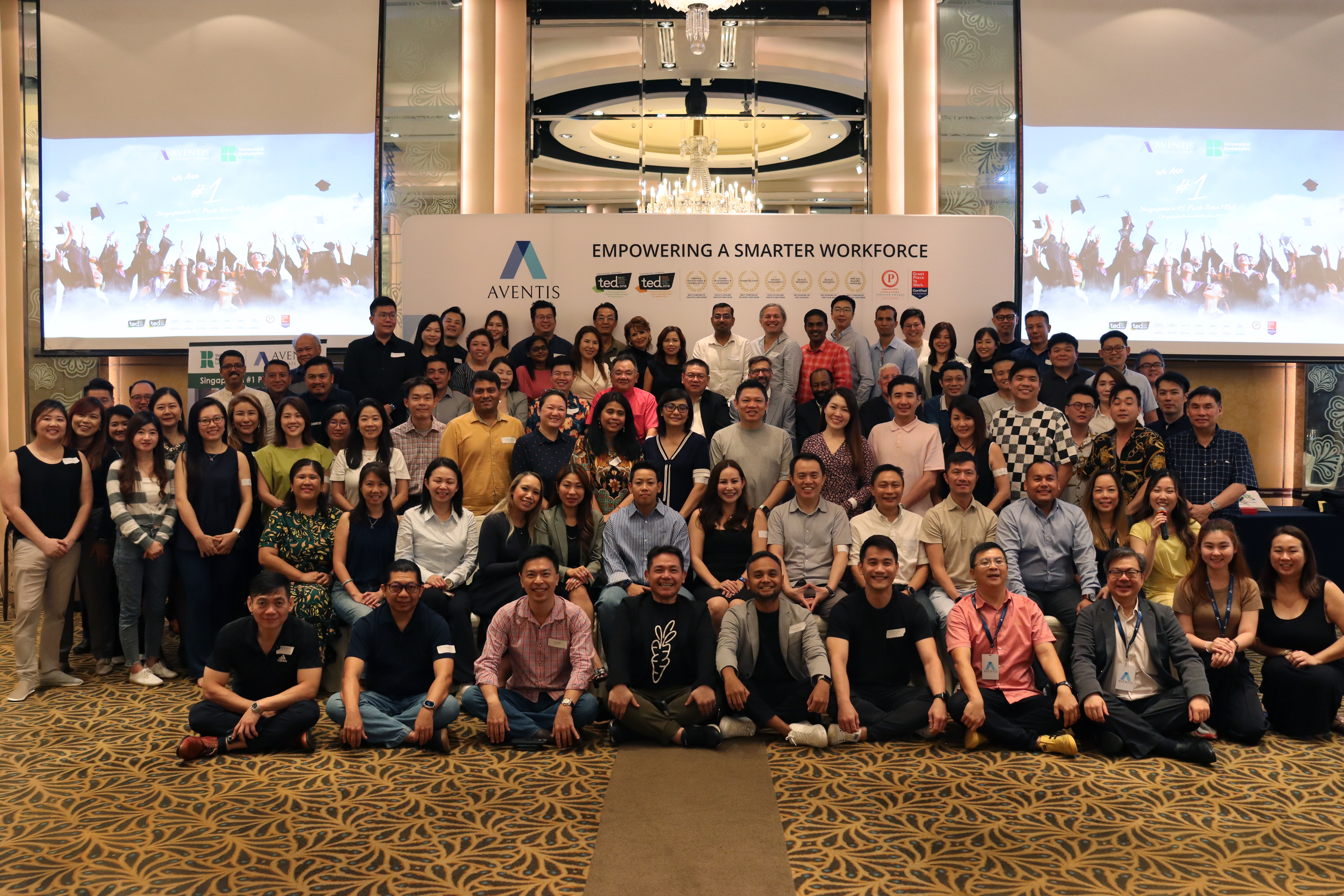Financial Data Analytics: Comprehensive Guide to Collecting, Extracting, and Interpreting Data
In finance, the ability to analyze and interpret data for key insights is a game changer. The key? Statistical thinking, understanding and controlling process variations to make smarter decisions. To truly excel, you need to master process maps and problem-solving techniques, plus know which data to focus on to tackle finance challenges.
Financial Data Analytics Course
$0.00 ($1,635.00 bef. Subsidy)
-$1,050.00 (Subsidy)*
-$585.00 (SFC Credits)*
*This is a projected amount, should you qualify for these.
Classroom Learning
2 Days, 9am to 5pm

Looking for 90% Subsidy?
View Corporate Training
why choose Financial Data Analytics?
Signing up for our Financial Data Analytics: Comprehensive Guide to Collecting, Extracting, and Interpreting Data course is a game-changer for anyone looking to transform their approach to finance and data analysis. This course provides you with the knowledge, tools, and real-world insights you need to excel in the world of financial data. You’ll explore everything from gathering and extracting data to analyzing and interpreting it to uncover key business insights. Whether you're looking to streamline financial reporting, make data-driven decisions, or stay ahead of industry trends, this course will empower you to unlock the full potential of data analytics, driving new efficiencies and opportunities in the financial sector.
2-Day Classroom Learning
Course ID: TGS-2024041805
Who is This Course For?


*Learners need to possess basic information and communication technology (ICT) skills. There are no *pre-requisites for professionals who would like to pursue the certification course.
Core Competencies You'll Gain:
Identify root causes
Qualify and prepare data
Compile and prepare data
Summarize and explore data
Data Types: Define and use them
Databases: Understand relational systems
SQL Commands
Excel Functions
Financial Data Analytics Course Details
Our Financial Data Analytics: Comprehensive Guide to Collecting, Extracting, and Interpreting Data course goes beyond theory, offering a hands-on approach to mastering financial data analysis. You’ll explore key topics like data collection techniques, extracting meaningful insights, advanced statistical methods, and data visualization tools, all through interactive activities, real-world case studies, and expert insights. This isn’t just another data course; it’s your gateway to becoming a confident, skilled professional in financial data analysis, ready to transform data into actionable business insights and drive informed decision-making in the financial sector.
Classroom Learning
@ Holiday Inn (Orchard City Centre)
@ Concorde Hotel
2 Days,
9.00am to 5.00pm
Drivers are responsible for arranging their own parking and paying any applicable parking fees.
Complimentary lunch and tea-break snacks are included as part of your course experience, on us!
Please note that the training venue is subject to change due to venue/training room availability.
Participants will be informed of any updates prior to the session.

Course Fee & Subsidies
Singaporeans aged
40 and above
Course Fee
$1,635.00
70% Subsidy
-$1,050.00
SFC Credits
-$585.00
Amount to Pay
$0
Singaporeans aged
below 40
Course Fee
$1,635.00
50% Subsidy
-$750.00
SFC Credits
-$885.00
Amount to Pay
$0
Permanent
Residents
Course Fee
$1,635.00
50% Subsidy
-$750.00
Amount to Pay
$885.00
*Please note that a $20 non-refundable and non-claimable registration fee applies for all course registrations
*Prices quoted are inclusive of GST at the prevailing rate
SkillsFuture Credits: All Singaporeans aged 25 years old and above can use their SkillsFuture Credits to fully offset the remaining fees.
UTAP Support: In addition, NTUC members can utilize UTAP to offset 50% of remaining fees (capped up to $250 per year)
Have questions? Read FAQ or Contact Us
Course Dates for Financial Data Analytics
No schedule dates available for this course.
Meet Your Trainers

Goh Cheng Hau, Gary
Gary is a seasoned data analyst with extensive experience working in leading software and biotechnology companies. As a CPE-Registered adjunct lecturer, he has taught and examined diploma to postgraduate courses across multiple private education institutions. Gary holds an MBA in Finance, a BSc in Finance, and a Specialist Diploma in Big Data Analytics. His professional certifications include the Microsoft Professional Program for Data Science and the Advanced Certificate in Training and Assessment (ACTA).
Financial Data Analytics Outline
- What is the overview of Problem Solving
- Define Statistical Thinking and Product Management roles
- What are the common Problem-Solving Methodologies
- What are the steps involved in Problem Solving
- What are the types of problems caused by not having a project baseline
- Why is a properly defined problem so important
- How to improve on Problem Statement Building
- What are the factors to consider before defining the requirement baseline
- What are the 4 key elements to a goal statement?
- What are the 6 sections of KPI
- What is a process flow
- How to identify Root Causes
- What are the 6 phases of the Design Sprint Methodology
- What are Product Testing and its methods.
- What is the Data Collection Strategies.
- What are the statistical tools for problem-solving
- What are the types of descriptive and inferential statistics
- What is the sampling strategy (Enumerative study)
- 2 case studies and discussion questions relating to root causes in a financial organisation.
- How to conduct Exploratory Data Analysis
- What is the purpose of exploring data
- How to use Gantt Chart
- Exploratory Data Analysis (SQL Query & Excel Tableau)
- What are Query and SQL
- What is the importance of SQL to the product manager.
- What are Database Essentials
- Types of Databases
- Relational Database Fundamentals
- What are SQL Structures
- Types of SQL commands
- What are Data Types
- Demo session for SQLite
- What is Data Definition Language System
- 3 DDL statements
- CREATE statement
- Use of SQLite Studio
- What is Data Manipulation Language Statement
- INSERT statement
- UPDATE statement
- Scenarios (One record, multiple records, and all records at a time)
- What are Data Query Language Statements
- SELECT and submit a query
- ORDER BY & GROUP BY & COUNT FUNCTION
- What is Data Control Language
- What are Transactional Control Commands
- 3 Common commands (COMMIT, ROLLBACK, SAVEPOINT)
- What are the dropping view command
- How to enhance database designs
- What is Entity Relationship (ER) diagram and its purpose
- How to understand, create and drop index
- How to enhance database design
- What are First Normal Forms (1NF)
- What are Second Normal Forms (2NF)
- What are Third Normal Form (3NF)
- What are the Microsoft Excel Functions
- What are the various error codes and likely reasons for it
- COUNT, AVERAGE, COUNTBLANK & CHOOSE, VLOOKUP, XLOOKUP formula
- How to sort and clean data
- How to remove duplicates
- How to consolidate data
- What is Tableau
- 4 key attributes to choosing tableau product
- Tableau worksheets, card shelves, marks, bar charts, and fitting charts for better visualisation
- How to create Data Visualisation in Tableau
- 7 steps to create data visualisation
- What are the KPI
- How to sharpen the dashboard
- How to conduct storytelling
- 3 critical elements of storytelling
- How to tell the story
- How to choose an effective medium and channel
Course materials will be provided in soft copy (digital format) as part of our eco-friendly and sustainability effort. Printed hard copies are available upon request. For any special requests (e.g., printed materials or accessibility needs), please inform us in advance.
Check Out Other Popular Courses
3 Easy Steps to Enroll
1
choose desired
course schedule
Choose convenient classes on evenings or weekends.
2
subsidy
Calculation
Fill out the form to calculate your government subsidies.
3
register
Online
Secure your place with a deposit and start today.
achieve mastery in Financial Data Analytics today

Upon successfully completing the Financial Data Analytics: Comprehensive Guide to Collecting, Extracting, and Interpreting Data course at Aventis Learning Group, you will receive an IBF-accredited certification recognized by employers in Singapore. This certification serves as a testament to your expertise in digital assets, helping you showcase your skills to potential employers and professional networks.
Bonus Tip: Display your certification on LinkedIn to strengthen your professional profile and capture the attention of potential employers.
FAQ
Data analytics is the process of collecting, processing, and analysing data to uncover insights, trends, and patterns. It helps in decision-making, optimizing processes, and predicting future outcomes. Types include descriptive, diagnostic, predictive, and prescriptive analytics, all of which are used to turn data into actionable knowledge, especially in fields like finance.
Yes, up to 70% funding support is available from The Institute of Banking & Finance (IBF) for our IBF-accredited programmes:
The IBF Standards Training Scheme ("IBF-STS") offers funding for training and assessment programmes accredited under the Skills Framework for Financial Services.
Eligible Singaporeans and PRs enrolled in our IBF-accredited courses can receive funding support through IBF-STS, subject to fulfilling all eligibility requirements.Yes. For self-sponsored Singaporeans aged 25 years old and above, you can use your SkillsFuture Credit to offset the remaining course fees after WSQ funding.
To check your SkillsFuture credit balance, please follow these steps:
- Go to https://myskillsfuture.gov.sg
- Click on ‘Submit SkillsFuture Credit Claims’
- Login with your SingPass
- Click on the arrow (>) at the top right hand corner. You will be able to see a drop-down list of your Available SkillsFuture Credits.
After you have registered for a course, an Aventis representative will reach out to guide you with the SkillsFuture Credits
*Please note that our courses are not eligible for “Additional SkillsFuture Credit (Mid-Career Support)’. You will only be able to use available credits from ‘SkillsFuture Credit’ and ‘One-off SkillsFuture Credit Top-Up’.Yes, all our courses are eligible for Union Training Assistance Programme (UTAP) Funding. NTUC Union members can use UTAP to offset 50% of unfunded course fees (capped at $250 per year).
This claim must be done after completion of the course. Please refer to the UTAP FAQ for more information.
Yes, both can be utilized concurrently. UTAP claims are processed after SkillsFuture Credits have been applied.
Illustrative Example:
- Total Course Fee: $1,000
- IBF Subsidy (70%): $700
- Remaining Fee: $300
- SkillsFuture Credit Applied: $200
- Out-of-Pocket Expense: $100
- UTAP Reimbursement (50% of $100): $50
The IBF funding support works on a nett fee model. This means that the subsidy is applied upfront, and you will only need to pay the balance course fees after the subsidy. For example, if you are eligible for 70% subsidy, you only need to pay the remaining 30% upfront.
To be eligible, you’ll have to meet the following prerequisites.
For Self-Sponsored:
All Singaporeans or Singapore Permanent Residents (PRs) that are physically based in Singapore and successfully complete the course will be eligible.
- Be a Singaporean Citizen or PR based in Singapore
- Minimum of 75% attendance (this means that you must attend at least 6 out of 7 lessons)
- Pass the final assessment
Any balance course fees can be offset using your SkillsFuture Credits & NTUC UTAP funding.
For Company-Sponsored:
- Be from Financial Institutions that are regulated by the Monetary Authority of Singapore (MAS) (either licensed / exempted from licensing) or Fintech companies that are registered with the Singapore Fintech Association.
- Be a Singaporean Citizen or PR physically based in Singapore
- Minimum of 75% attendance (this means that you must attend at least 6 out of 7 lessons)
- Pass the final assessment
A laptop is required for this course. No special software or other hardware is required for this course participation.
 Supercharge Your Career with Generative AI & ChatGPT!
Supercharge Your Career with Generative AI & ChatGPT!
